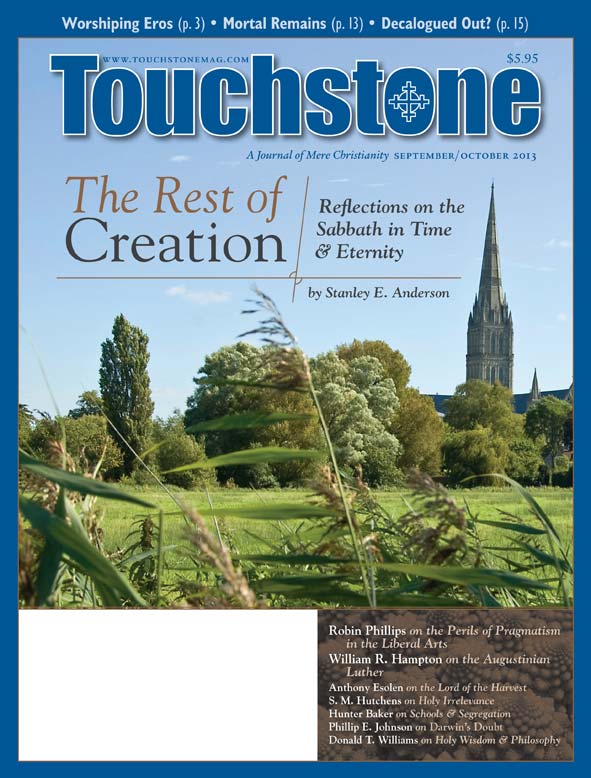From ‘More than Schooling The Perils of Pragmatism in Christian Attitudes Toward the Liberal Arts‘:
Appreciating that some artifacts are good in themselves, and not merely because of what they do for us, is the first step towards a proper appropriation of the liberal arts. The best argument for teaching children to love Aeschylus, Shakespeare, and Hopkins is simply that these authors wrote things that are beautiful. Just as the best reason for smelling a rose is that it has a lovely fragrance, so the best reason for learning Latin is that Virgil’s Aeneid is beautiful….
The exclusively pragmatic approach does a particularly great disservice to the teaching of literature since it orients us to adopt a didactic and utilitarian approach to texts. We may start to think that the value of a text lies in the worldview lessons we are able to draw out of it and completely overlook the aesthetic considerations. Many, for instance, have the idea that the primary purpose of learning Shakespeare is to understand allusions and figures of speech, or that memorizing poems is mainly good as an exercise to develop memory skills, or that the value of learning Latin is to understand word origins, and so forth. The idea that learning Virgil in the original Latin has a value not tied to any practical benefit strikes them as odd.
When students are trained to think in strictly pragmatic ways, they will find it difficult to enjoy, say, a Shakespeare play if they can’t derive a specific worldview lesson from it. They may become so over-active in finding worldview lessons that they discern some Shakespeare never intended. How much better it would be to get them to enjoy Shakespeare plays simply for their masterly use of language and compelling plots and characters. How much better for students to come to love things that are noble and praiseworthy even when they do not have a specific use. As Flannery O’Connor put it in Mystery and Manners, “The fact is, people don’t know what they are expected to do with a novel, believing, as so many do, that art must be utilitarian, that it must do something, rather than be something.”


 The exclusively pragmatic approach does a particularly great disservice to the teaching of literature since it orients us to adopt a didactic and utilitarian approach to texts. We may start to think that the value of a text lies in the worldview lessons we are able to draw out of it and completely overlook the aesthetic considerations. Many, for instance, have the idea that the primary purpose of learning Shakespeare is to understand allusions and figures of speech, or that memorizing poems is mainly good as an exercise to develop memory skills, or that the value of learning Latin is to understand word origins, and so forth. The idea that learning Virgil in the original Latin has a value not tied to any practical benefit strikes them as odd.
The exclusively pragmatic approach does a particularly great disservice to the teaching of literature since it orients us to adopt a didactic and utilitarian approach to texts. We may start to think that the value of a text lies in the worldview lessons we are able to draw out of it and completely overlook the aesthetic considerations. Many, for instance, have the idea that the primary purpose of learning Shakespeare is to understand allusions and figures of speech, or that memorizing poems is mainly good as an exercise to develop memory skills, or that the value of learning Latin is to understand word origins, and so forth. The idea that learning Virgil in the original Latin has a value not tied to any practical benefit strikes them as odd.